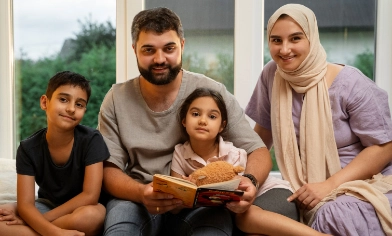Life insurance and how to apply
Life insurance is a type of life cover that pays out a lump sum when you die. It can help your loved ones manage costs like mortgage payments, funeral expenses or outstanding debts. The right type of policy for you will depend on your personal circumstances and what you want to cover.
When you apply for life insurance, you’ll be asked questions about your health and lifestyle. This helps insurers work out your level of risk, whether you’re eligible for cover and the monthly premium you’ll pay for it. Some insurers may also request ID or documents. The application process isn’t as complex as it might seem. But the details can seem daunting when you start digging around for quotes. So we’re demystifying what’s involved.


















